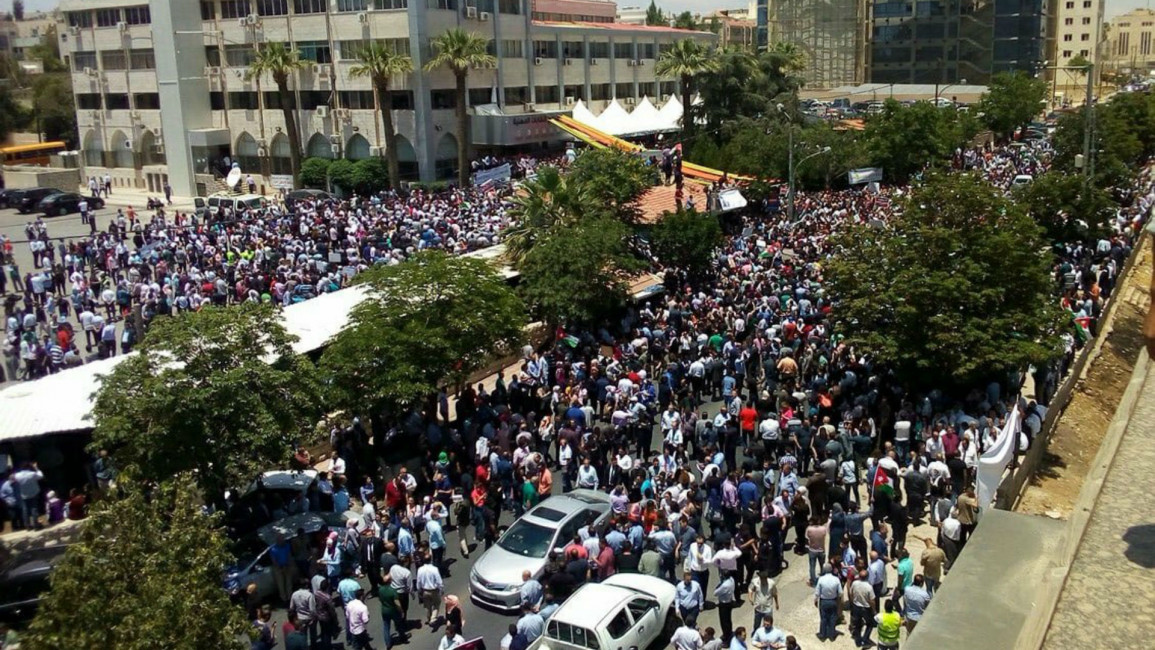Jordan strikes against proposed Income Tax Law
Jordan's workers, farmers and traders launched a rare nationwide strike on Wednesday to protest against a proposed bill to raise income taxes.
The new law calls for taxing annual incomes of 8,000 Jordanian dinars (JDs) - around $11,280 - or more, with anger on the streets of Amman, during a rare show of mobilisation against government measures.
Many are angered that Amman is seeking tax hikes despite the lack of represention for people in government and the poor public services provided to the people.
On Monday, the Council of Jordanian Trade Unions said it would endorse the strike after a meeting on Saturday between council members and Prime Minister Hani al-Mulki failed to reach a compromise.
Jordan's industrial sector employs some 230,000 people who support nearly one million citizens.
Protesters have called on the Jordanian government to withdraw the 2018 Income Tax Law from the agenda of the Lower House's extraordinary session.
"[The law will] contribute to less foreign investments and the closures of factories, and will consequently lead to the loss of jobs for many Jordanians," stated a joint statement by industrial leaders, who also oppose the bill.
Twitter Post
|
Various industrial sub-sectors were represented in the Saturday meeting in the Amman Chamber of Industry.
The industrial leaders said that economic reforms "cannot be achieved through imposing more taxes, but rather by stimulating productive sectors and increasing their contributions".
Agricultural associations, unions and societies rejected the proposal, and have expressed their readiness to participate in the strike following a call by the Professional Associations Council.
Earlier in the month, the unions promised escalatory measures if the government continued to push forward with the proposed version of the law.
Twitter Post
|
In a statement, the Jordan Engineers Association (JEA) called on its members to take part in the protest to defend "people's living conditions and to counter the negative repercussions that will befall the middle and low-income and marginalised segments of society".
Jordan's farmers also joined the nationwide strike, by halting the supply of produce, meat and poultry to local markets.
Jordan's agriculture sector has been in an upheaval since the Syrian crisis began in 2011 when the country lost its main portal to the European markets.



